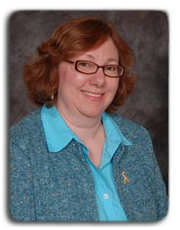Challenge or Threat? Helping Students Build a Psychological Capital Foundation in Clinical Settings
| Registration |
|---|
Before enrolling in this educational activity, you must log in or create an account. Once you register for the course, you will have 30 days from the enrollment date to complete it. The date your access expires will be indicated in the Course Summary box on this webpage. |
Purpose
A clinical instructor is an experienced practitioner who provides supervision during clinical practice and facilitates the application of theory to practice for students and staff learners. They assist the learner by setting expectations, providing effective feedback about their performance, and providing appropriate opportunities to meet their learning objectives.
Des Moines University Medicine and Health Sciences support healthcare providers who actively participate in our student's education by offering excellent clinical training opportunities. Clinical instructors transmit skills and serve as mentors who convey the core values important to Des Moines University Medicine and Health Sciences: accountability, collaboration, honesty, inclusiveness, and wellness.
Clinical instructors do what no textbook or classroom can accomplish. As a result, the students benefit from the community-based experience, while preceptors benefit from integrating new ideas and techniques into their practices currently taught in academic health sciences institutions.
Description
Clinical educators can help students develop their psychological capital and positive psychological state, which research has found can favor student engagement, outcomes, psychological well-being, and self-directed learning. The four components of psychological capital, hope, self-efficacy, optimism, and resiliency will be explored. Attendees will have the opportunity to discuss how encouraging students to develop psychological capital can provide a foundation that can ultimately enhance professional identity and well-being in health care practitioners.
Learning Objectives
- Describe how psychological capital can influence perception, coping strategies, motivation, and self-directed learning.
- Explore how strategies to support the development of hope, self-efficacy, optimism, and resiliency in clinical education can assist students in managing stress effectively and enhancing their self-directed learning abilities.
- Explore the relationship between psychological capital, professional identity, and well-being.
Speaker

Marti Doyle, MSW, PhD
Associate Professor, Social Science, Mercy College of Health Sciences
Dr. Doyle has been working in healthcare education for over 19 years and is committed to healthcare student support and success. She was a counselor for Mercy College of Health Sciences (MCHS) students and created and developed the Mercy College of Health Sciences Student Success Program. She strongly advocates for students and is an active member of the college's diversity and inclusion council.
Dr. Doyle believes that education should be a transformative experience for students. She has researched using a transformative learning approach to challenge students' current attitudes, assumptions, and beliefs about death and dying. She currently teaches social science courses at MCHS using this transformative learning approach. Her course load includes the higher social science level course for Mercy's Health Science program, including Death, Dying, and Bereavement. This course allows students to explore and transform their awareness of death and dying.
Before entering the educational field, Dr. Doyle was a hospice social worker and bereavement counselor. She continues to volunteer in hospice, providing support to patients and families facing a terminal diagnosis, including patients who are in the active dying process.
Dr. Doyle holds a doctorate in Human Services from Capella University, a Master of Social Work from the University of Iowa, a bachelor's in human services from Grand View University, and a graduate certificate in Health Care Ethics from Creighton University. Dr. Doyle believes that helping healthcare students develop a strong foundation for their personal and professional lives is an important part of her life's legacy.
Terms of Use and Privacy Policy
Recording date: November 12, 2024
Date of original release: November 13, 2024
Most recent review/update: November 13, 2024
Termination date: November 12, 2027
Available Credit
- 0.75 CE Contact Hour(s)

 Facebook
Facebook X
X LinkedIn
LinkedIn Forward
Forward